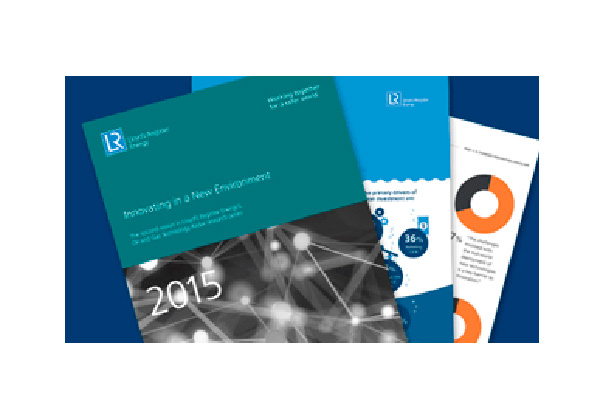
Innovation challenges in oil and gas in focus
LONDON, October 27, 2015
While the current environment is creating oppotunities for innovation, almost half of oil and gas executives have admitted that they have fallen short of their innovation goals, according to a new report.
The Technology Radar 2015 report, launched by Lloyd's Register Energy, a leading integrity, compliance and specialist risk consulting services group, pointed out that the executives saying they have fallen short has almost doubled as the oil prices has gone down, with only 26 per cent saying they had fallen short in Spring 2014.
The report, Innovating in a New Environment, combined Lloyd’s Register Energy’s expert knowledge with third party insights, to provide data-driven findings on the role of innovation in the current and future upstream oil and gas industry.
Through interviews with senior industry practitioners and a global survey of oil and gas professionals, it provided a compelling case for increased technological innovation.
John Wishart, group energy director, Lloyd's Register, said: “The oil and gas industry is undergoing a period of significant uncertainty. The oil price slowdown is clearly impacting investment in innovation initiatives. However, our report finds that contrary to perceived wisdom, innovation has a crucial role to play in the current environment, where it creates operational efficiencies and is cost-effective.
“To innovate properly and achieve business goals companies must address a number of common challenges, including collaborating more openly, using data more effectively and changing traditional mind-sets.
“Encouragingly, our findings show that overall the industry understands the need for innovation and has begun reaching out to other sectors to gain technological insight.”
In the opening part of the report, it considered the role for innovation in the changing innovation landscape and concluded that the cyclical downturn should be a driver of innovation, not a barrier.
Crucially for industry professionals, the report outlined three scenarios for how different oil prices may affect innovation, examining the types of innovation that will be prioritised in each scenario.
The majority of oil and gas executives believe the oil price will sit between $50-$70 in the next year, with the highest percentage (27 per cent), believing it will hover around $70. This will in many cases hinder investment in innovation.
The report also looked at how executives are placing increasing emphasis on collaboration, both internally and outside of the industry, as they adapt technology from other sectors.
Two-thirds of respondents said they are under pressure to collaborate with other organisations within the sector. When they do collaborate, upstream companies focus on the early stages of a project, and often around safety.
The report revealed an overarching cultural shift is still required to fully integrate genuine collaboration in innovation.
Finally, in part three the role for data collection and analytics in driving innovation was assessed, finding that more advanced data collection and analytics are a must have in the current low oil price environment.
Lack of data and systems integration across different parts of the business were huge barriers to successful data collection and analytics, with silos the biggest cause of the issue.
Despite understandable pessimism due to the current landscape, Technology Radar 2015 showed that the downturn in the oil price is strengthening the need for innovation, not weakening it.
The unique insights provided by this report show industry professionals how they can address the challenges to better innovation and enhance operational performance. - TradeArabia News Service







